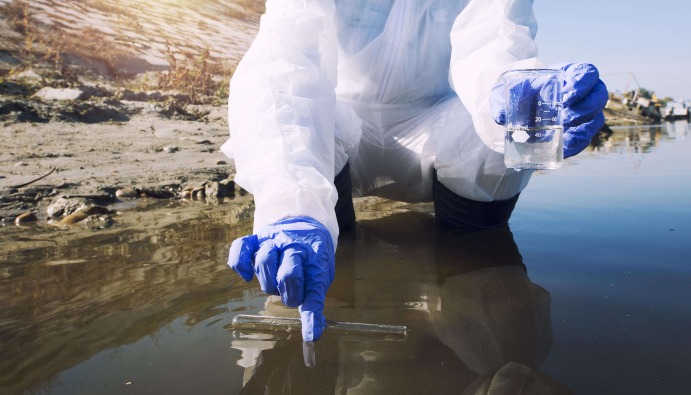
BLOG
KATEGORİDEKİ DİĞER YAZILAR

TKN refers to the sum of nitrogenous compounds measured by a method developed by Johan Kjeldahl in 1883. TKN usually includes the following components:
The TKN value is a key parameter for assessing the total load of nitrogenous pollutants. Nitrate (𝑁𝑂3-) and nitrite (NO2-) nitrogen are not considered within the scope of TKN.
1. Water Quality Monitoring: TKN is a critical parameter for assessing the organic matter load and nitrogen-derived pollutants of wastewater.
2. Performance of Treatment Plants: It is used to determine the effectiveness of wastewater treatment plants in organic nitrogen and ammonia removal.
3. Environmental Pollution Control: High TKN levels can cause eutrophication in water bodies. This leads to algal blooms and ecosystem imbalances.
4. Regulatory Compliance: TKN analysis is mandatory to check whether wastewater meets discharge standards. In Turkey, the Water Pollution Control Regulation imposes limits on TAC levels.
TKN analysis results are used to understand and control the environmental impacts of nitrogenous pollutants in water resources:
1. Eutrophication Risk: High TKN levels lead to nutrient enrichment in water bodies. This can lead to reduced oxygen levels and disrupted ecosystem balances.
2. Efficiency of Treatment Plants: TKN analysis results reveal the efficiency of biological or chemical nitrogen removal processes.
3. Legal Compliance: High TKN values mean violation of environmental legislation and may result in administrative sanctions.
Industrial wastewaters are subjected to nitrogen and phosphorus analysis to determine whether there are sufficient nutrients, especially for biological treatment processes. Since the amount of nitrogen is basically low in natural waters, algae growth accelerates when mixed with nitrogenous wastewater. It is considered a pollutant due to its toxic effect on fish.
The most important reason for environmental pollution is that all wastes, especially wastewater, cannot be disposed of properly and correctly. Organic nitrogen and ammonia are analyzed in wastewater and total nitrogen, i.e. “Kjeldahl Nitrogen” is determined.
SM 4500-Norg B: Determination of Total Kjeldahl Nitrogen in Wastewater
Nanolab Laboratories Group continues to provide services within the scope of Total Kjeldahl Nitrogen (TKN) Determination in Waste Water. We also provide services in Sea Water Analysis.
Contact us for more information.
You can follow us on LinkedIn for up-to-date news and posts about our services.
Follow our Instagram account to be informed about our latest blog posts.